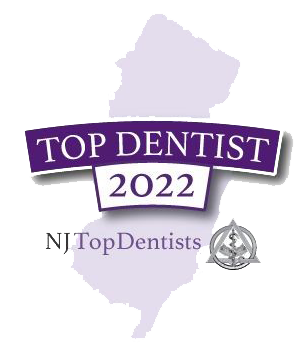
Do’s and Don’ts for Managing TMJ Pain

If you have recently been diagnosed with temporomandibular jaw (TMJ) disorder (TMD), you may be wondering, “What’s next?” In addition to seeking treatment from a board certified dentist who specializes in TMJ treatment, there are several things you can do to manage your TMD. In this blog post, Dr. Ivan Stein of Headache & TMJ Center for New Jersey shares do’s and don’ts for TMJ pain.
Don’t Clench Your Jaw
Clenching your jaw puts pressure on your TMJ which can lead to jaw pain, earaches, headaches and other symptoms. During the day, keep your jaw rested by positioning your teeth slightly apart, your lips together and your tongue relaxed in the mouth. If you suspect you clench or grind your teeth while you sleep, consider wearing a mouth guard.
Do Find the Best Sleeping Position for Your Jaw
Your sleeping position can also play a role in TMJ pain and even cause you to lose out on good sleep. For instance, sleeping on your stomach can put extra pressure on your jaw. If you wake up in the morning with jaw pain, try sleeping on your back to help relieve tension on the jaw.
Don’t Ignore Symptoms
Ear pain, headaches, teeth grinding, dizziness, neck and back pain are all symptoms of TMD. But because they are so common, some patients are unaware that their pain is related to TMD and, as a result, ignore these symptoms. If you suspect you have TMD, you are advised to see a TMJ specialist right away. Early detection and treatment can prevent TMD symptoms from worsening.
Do Consider Your Eating Habits
Repetitive jaw movement can worsen TMD symptoms while eating hard or crunchy foods can hurt your teeth and jaw. If your jaw hurts during or after meals, or if you notice a clicking sound while you chew, try sticking to soft foods. Or, cut up foods into smaller pieces that are easier to chew and won’t put too much stress on your jaw.
Don’t Take Over-the-counter Medication
It’s not uncommon for some people experiencing headaches, ear and jaw pain to take over-the-counter medication in an effort to remedy their symptoms. Unfortunately, these usually only provide temporary pain relief and do very little to manage symptoms long-term.
Do Schedule an Appointment with Dr. Stein
New Jersey patients seeking relief from TMD turn to Dr. Ivan Stein, a board certified dentist with years of experience diagnosing and treating TMD. Dr. Stein can evaluate your symptoms in order to find the best treatment option for you. To schedule an appointment with Dr. Stein, please call the Headache & TMJ Center of New Jersey at (855) TMJ-DOCS or (855) 865-3627 today.

